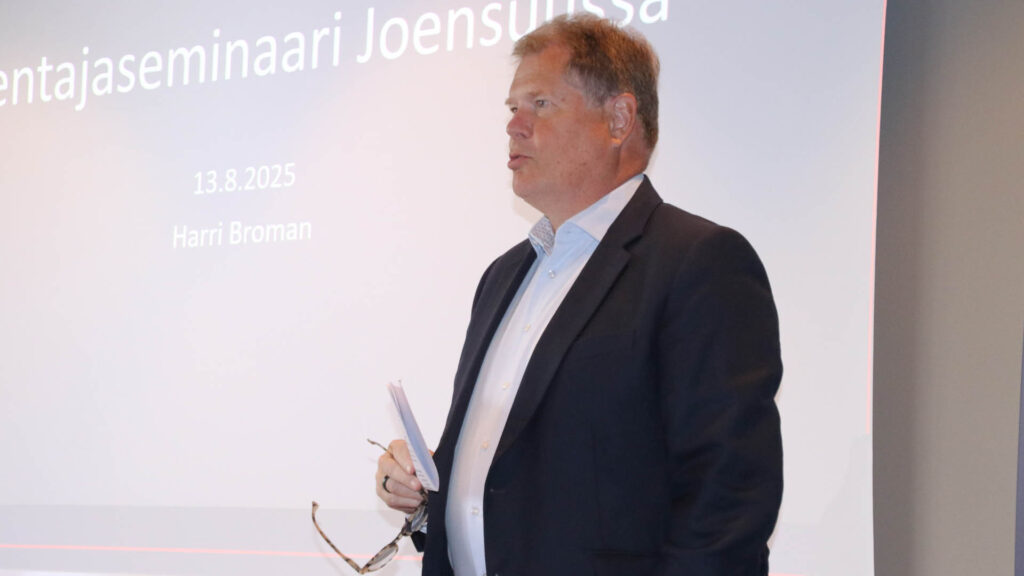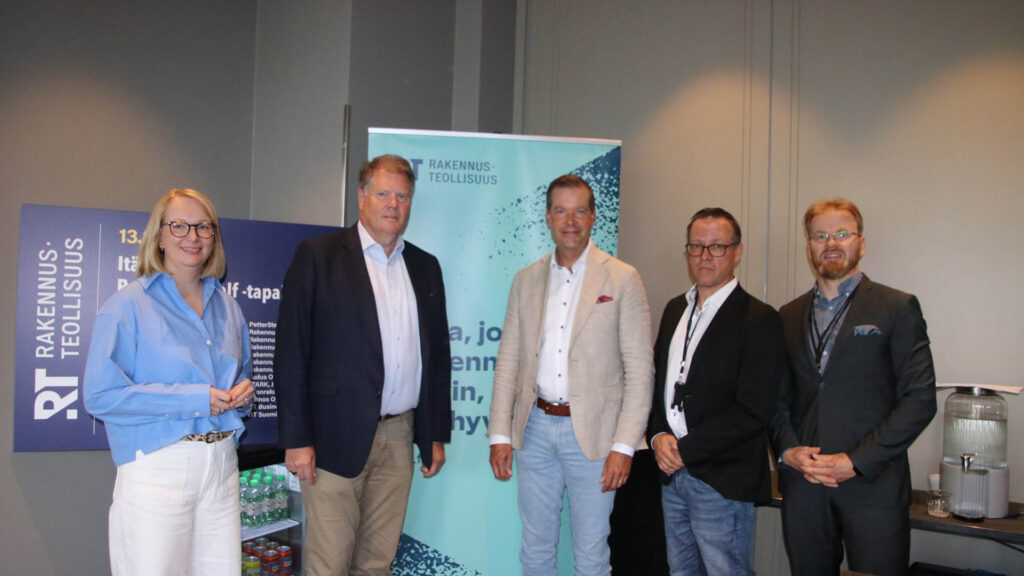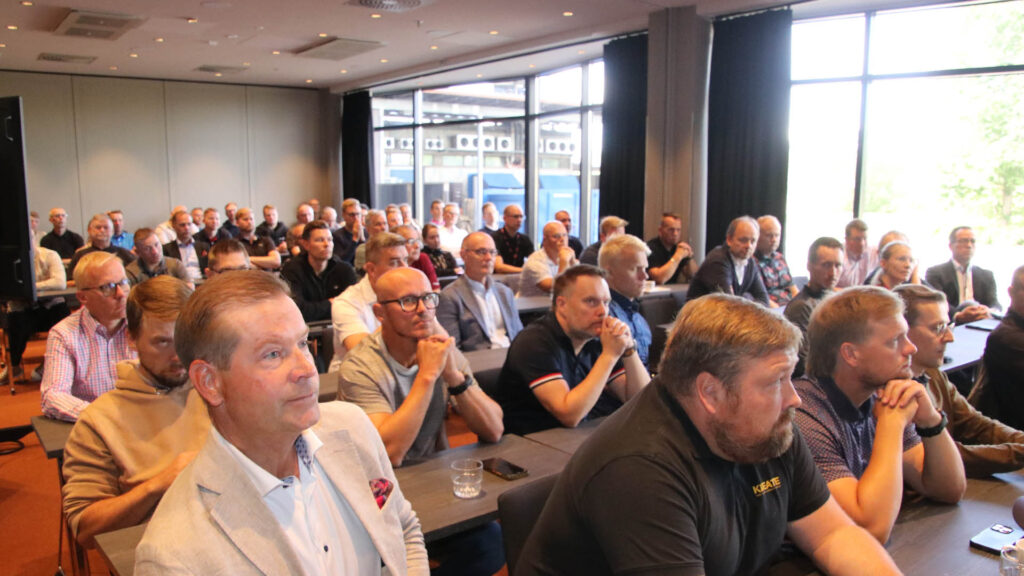The 13th Eastern Finland Construction Seminar, held in Joensuu on August 28, dealt with fewer construction issues than usual, as the main focus was on revitalizing the economy of Eastern Finland and operating environment issues.

Chairman of the Board of Directors of Broman Group, Commercial Counsellor Harry Broman reported on the five most important development and strengthening policies related to the Government's Eastern Finland Programme, the promotion of which he and the Prime Minister agreed to in early 2025 Petteri Orpo with.
The most important of these, according to Broman, is the start of a special economic zone experiment in Eastern Finland on the Kotka-Kuusamo line.
"The experiment would include financial incentives for companies, such as tax breaks for investing and establishing new operations in Eastern Finland. Special economic zones exist in many EU countries, even in more developed ones. It is also possible in Eastern Finland. Investments must also be attracted to Eastern Finland from abroad, and current development programs must be intensified."
According to Broman, Eastern Finland must be brought on par with the rest of Finland by extending the 400 kV main grid to North Karelia via the new Varkaus-Kontiolahti power line. Sufficient and uninterrupted access to electrical energy is more important than ever for business and society as a whole. Its importance is only increasing as digitalization progresses rapidly.
Broman believes that the geographical accessibility of Eastern Finland must be improved through investments in transport routes. In particular, air traffic must be secured to Joensuu and Kajaani airports even after the current contract period ends in 2028.
In addition, accessibility is key to the tourism industry, which is one of Broman's five main areas for development. According to him, Eastern Finland must invest in the development of wilderness and nature tourism and international marketing. The number of foreign visitors to Eastern Finland has remained too low, especially since the eastern border was closed. Harri Broman also took a position on how entrepreneurship can be increased in Eastern Finland.
“Educational institutions have an important role to play in improving skills and entrepreneurial attitudes. Access to finance must be made easier for aspiring entrepreneurs and developing companies. International connections and networks must be strengthened and labour migration increased.”
Eastern Finland is lagging behind in accessibility…
Also Joensuu's strategy director Sami Laakkonen interfered with the accessibility of eastern Finland.
Laakkonen believes that positive demographic trends will increasingly focus on large or medium-sized university cities such as Joensuu, Kuopio and Lappeenranta in Eastern Finland, as good work, study and leisure opportunities attract migrants and are also factors that maintain an active population. Like Broman, he considered securing air traffic and energy supply to be key factors in accessibility.
“There is also a need to improve rail connections in Eastern Finland to speed up rail traffic. The logistical costs of Eastern Finnish companies must be reduced. Industrial transport in the Vuoksi watershed has increased clearly in recent years, but the closure of the Saimaa Canal is hindering them. The increase in the allocations for road maintenance in Eastern Finland for this year to over 120 million euros is positive. I hope this development continues, because there is a great need to improve the road network.”
… and in the awareness of tourism products
Visit Karelia Development Manager Terhi Millar reminded that Eastern Finland has potential to be achieved, especially in international tourism, but it requires a lot of work and financial investment in increasing awareness, as well as in the development and marketing of distinctive tourism services and products.
"However, there is concern about the significant reduction in the resources of national and regional tourism promotion organizations. Eastern Finland's tourism was heavily dependent on Russian tourists and their absence has not yet been compensated, although domestic tourists are visiting in moderation. Marketing efforts are now being directed particularly at German-speaking Central Europe."
Visit Karelia and Business Joensuu Oy have a strong goal to increase the number of tourist overnight stays in North Karelia from the current half a million per year to one million by 2030. This requires a more even and growing distribution of the number of visitors, which is concentrated in June and July, to other seasons.

The labor market is in a state of flux – several scenarios for the future
RT's labor market director Jukka Sarhimaa discussed the trends in changes in the Finnish labor market system and situation. According to him, the export-led model has become established as the wage norm in Finland in the five most recent labor market solutions, including the one achieved this year.
"The amendments to the Employment Contracts Act, which may come into force at the beginning of 2026 and are still being prepared, will partly mean new arrangements in the employer-employee relationship, including regarding dismissals and fixed-term employment contracts. The reforms to the mediation system that came into force at the beginning of this year will bring changes to negotiation and dispute situations in the labour market. The country's government's reforms and cuts can also affect the labour market and operating environment," said Sarhimaa.
He envisions three types of development scenarios for the labor market. One of them is a “cold war,” i.e., an increase in confrontation between the social partners and the general binding nature of collective agreements, leading to the spread of company-specific agreements. Another alternative scenario is the beginning of a relaxation between employer and employee organizations and the subsequent development of the collective agreement system. The third vision is a political shift of society and the labor market to the left, which could lead, among other things, to an increase in the general binding nature of agreements, contrary to current trends.
Harri Broman, who served as the chairman of the Confederation of Finnish Industries (EK) in 2023-2024, saw the development prospects of the labor market as moderately positive when it comes to top-level relations between the labor market parties. Chairman of the Construction Seminar, Regional Manager for Eastern Finland Kimmo Anttonen reminded that at least the public sector cannot be a wage leader, because Finland lives on exports now and in the future. Domestic industry must adapt to export-led wage solutions and more flexible collective agreements.

Text and pictures: Ilpo Lommi
See also
More information

Kimmo Anttonen
Regional manager
kimmo.anttonen@rt.fi + 358 50 449 3479Talonrakennusteollisuus ry, Eastern Finland